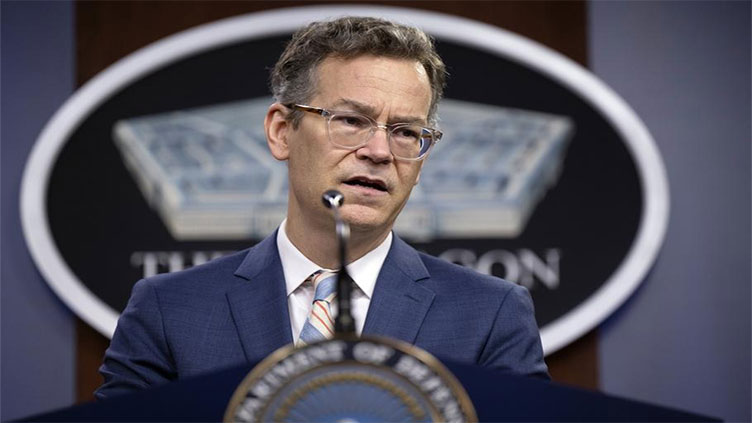Ukraine's counter-offensive slower than expected, but too soon to judge: Pentagon

World
Pentagon said Ukraine's counter-offensive against Russian forces is slower than expected.
WASHINGTON (Reuters) - Ukraine's counter-offensive against Russian forces is going more slowly than some expected but it remains too early to draw conclusions about Kyiv's prospects for battlefield gains, a senior Pentagon official said on Friday.
The United States and other allies have spent months building Ukraine a so-called "mountain of steel" of weaponry and training Ukrainian forces in combined arms techniques to help Kyiv pierce formidable Russian defenses during its counter-offensive.
But Russia also spent months digging into defensive positions, surrounding them with landmines and building heavily armed fortifications that have made Ukrainian advances in the east and south slow and bloody.
Colin Kahl, the Pentagon's top policy advisor, told reporters Russia was more successful digging in "than perhaps was fully appreciated."
He expressed confidence Kyiv was doing its best in a difficult fight.
"It's too early to judge how the counter offensive is going one way or the other because we're at the beginning of the middle," Kahl said at the Pentagon.
"They are still probing Russian lines (and) Russian areas for weak spots. And the real test will be when they identify those, how rapidly they're able to exploit those weak spots."
Kahl's remarks came as he announced the provision of cluster munitions that the Pentagon hopes will help ensure Ukraine has enough firepower.
"We want to make sure that the Ukrainians have sufficient artillery to keep them in the fight in the context of the current counter-offensive, and because things are going a little slower than some had hoped," he said.
Some U.S. officials, speaking on condition of anonymity, have expressed optimism that Kyiv has all the weaponry it needs, including mine-clearing line charges and mine-ploughs.
Ukraine also may have a unique opportunity following last month's armed mutiny by Russian mercenary leader Yevgeny Prigozhin, which U.S. officials say exposed the corrosive effects of President Vladimir Putin's war in Ukraine.
On Thursday, Belarusian President Alexander Lukashenko said Prigozhin was still in Russia with thousands of Wagner group fighters.
Kahl on Friday declined to speculate about Prigozhin.
"Prigozhin: Where he is, what he's up to, I have no idea," he said. "It's clear that the Russian state is trying to systematically dismantle his empire and put piece parts in different places. What the ultimate end game Putin has for Prigozhin and the remnants of Wagner I think is still to be determined."

